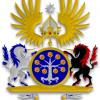
Larry.
Members-
Posts
5,561 -
Joined
-
Last visited
About Larry.
- Birthday 07/17/1974
Contact Methods
-
Website URL
http://ofblog.blogspot.com
-
ICQ
0
Profile Information
- Voy a navegar por otros mares de locura...
-
Gender
Male
-
Location
Just outside Nashville, TN
Recent Profile Visitors
12,635 profile views
Larry.'s Achievements

Council Member (8/8)
-
YES! Although I know and understand the arguments against why a musician/songwriter might be miscategorized, I can totally support this selection, not least of which for me being a longtime fan of his music/lyrics.
-
I'm still holding out hope for Bob Dylan
-
Oh, it'll be Bob Dylan. ;)
-
Not surprised, even though I thought it might go to an Arab writer due to the Arab Spring and the civil war in Syria (yes, I'm cynical). I just bought The Republic of Wine and will read it sometime in the near future (I also have three more National Book Award finalists to read/review after I write more Booker Prize reviews, so it may be a few weeks), as the premise sounds interesting. Much as I have enjoyed the three Krasznahorkai novels that I've read, I get the impression that his themes are almost anti-Nobel in their "darkness."
-
Having checked the latest odds, I wonder who else here chuckled at seeing E.L. James listed at 500/1? :D The more I think about the serious candidates, the less likely I think a Western European will be chosen two years in a row.
-
Well, after getting over my mild surprise that Kadere is still alive (for some reason I thought he had died some years ago), I liked the one list that included Syrian poet Adonis, who had a large collection of his poetry translated into English two years ago. Been reading that off-and-on the past month and he is an excellent poet. Murakami would be an interesting choice (same for Kadere). I wonder if Achebe's ship has sailed. Munro would be worthy. And all of the above would be better than the shade of Tolkien ;)
-
That particular Restrepo book is very, very good. As for the maturation of writers/movements, how many authors do you know still identify themselves as "New Weird?" Things change and having authors sticking to a 16 year-old manifesto would be akin to herding cats after they've written a few novels and developed different interests.
-
It's not so much those authors I mentioned were co-opted into that "movement," but as Fuguet said in that link, there may have been something about their attitude toward the contemporary (Latin American) world that resonated with that pamphlet. By 2007, he had largely eschewed the movement, noting that it was perhaps more a movement-that-wasn't-a-movement, but rather "an adjective." Writers in their 20s and 30s sometimes mellow out in their 40s and that seems to be the case with him. The others weren't quite so brash to begin with in the first place. I don't know when I'll have the time to write it, but I think a case could be made for comparing some of the world-views of the McOndo/Crack writers with those who turned to weird/surrealist writing in the US, UK, and Eastern Europe in the 1990s. It might require a formal paper rather than a simple blog post, however. But I do believe that social conditions in the 1990s fostered some emerging lit groups/movements/"moments"/"adjectives" that have influenced writers and readers alike since then.
-
You might like this 2007 blog post by Fuguet. He sounds quite a bit like how Jeff VanderMeer did when discussing New Weird fiction in talking about McOndo over ten years later. Part of it is in English (most of the second half, at least).
-
Having read most of the people associated with McOndo (and the related Crack Manifesto group in Mexico), I disagree with those who argue that it is self-absorbed. If anything, it is a corrective to the tendency of several Boom Generation-influenced narratives that decentralized the personal subjects of the stories. Yes, there is a greater awareness of Self in several of these novels (Alberto Fuguet's The Movies of My Life comes to mind), yet that self-awareness is not to the exclusion of others (there is a subtle yet pointed commentary on Pinochet's Chile within those flashback scenes). Fuguet, Edmundo Paz Soldán, and Giannina Braschi are very well-regarded today for their social commentaries; they just are not commenting on the Latin America of the 1920s-1950s. Furthermore, if one could make the comparison of the McOndo/Crack Manifesto writers as being the Punks to the Boom Generation's rock'n'roll, Roberto Bolaño would occupy Patti Smith's role, that of being the god(father) to the Punks (McOndoists/Crack Manifesto group). Considering Bolaño's continued popularity and his influence on Fuguet and Paz Soldán, there might be something special already occurring in Latin American literature. At least I think there is, having read a few dozen novels by the names mentioned above, Jorge Volpi, Ignacio Padilla, and (to go a half-generation older), Javier Marías and Horacio Castellanos Moya. It really would not shock me if someone from the group mentioned above wins a Nobel in the next decade, because they are doing some interesting things with melding cinema, pop culture, and social commentary that very few American writers are daring to do today.
-
 Vrana reacted to a post in a topic:
Nobel Literature Prize Speculation: Jon Fosse
Vrana reacted to a post in a topic:
Nobel Literature Prize Speculation: Jon Fosse
-
It can't be serious until Tairy and/or Stanek are mentioned as possible candidates.
-
I'm holding out for W. Axl Rose in 2025.
-
I wouldn't be surprised if Dylan were to win one day soon, but there's nothing more to add than I like his lyrics and that Popes and dissent leaders have quoted those in recent years :P
-
There are some brilliant, brilliant authors from the past 30 years or so. Mahfouz, Vargas Llosa, Saramago, and Oe in particular are favorites and compare very favorably to the very best of the first 80 years or so of the award. I say this as one who's read or owns at least one book by close to three-quarters of the authors listed.
-
I'd say quite a few do, based on even the snarky comments. Pynchon is known to be a man. He just retreated to seclusion several years ago, after his fame reached its zenith. Right now, all I hear are rumors and speculations on who would be a good fit. Having read both of the László novels (Satantango was finally published in English about two months ago), he would be a good candidate, depending on how the committee chooses to interpret Nobel's will regarding literature with "a ideal direction."

